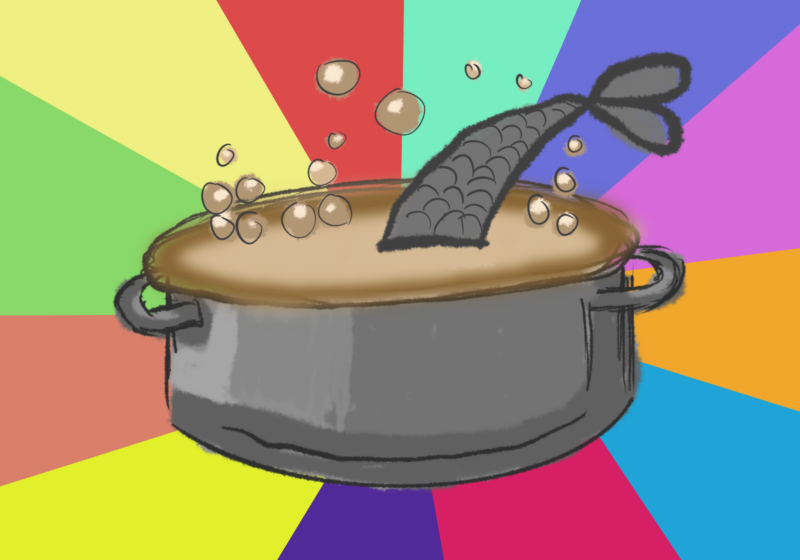The All-Campus Judicial Council upheld the Elections Committee decision to place strong sanctions on the Students’ Association Presidential and Vice Presidential campaign of junior Alex Pearlman and junior Marquis Harrison on Sunday.
Last Thursday, the Elections Committee ruled against Pearlman and Harrison on a case alleging campaign violations, primarily campaigning before the official start date through the formation of a facebook group supporting the pair.
The committee stripped the Pearlman-Harrison campaign of their SA-supplied campaign funds and took away their right to post mass-produced flyers in dorms and other locations around campus or spend money on advertising materials.
The case was brought before the Elections Committee by Pearlman and Harrison’s opposing candidates, Presidential candidate and junior Michael Bozzela and his running mate sophomore Hannah Geswein and Presidential candidate and junior Feisal Adan and his running mate sophomore Daniel Fisher.
“We heard that some elections rules had been violated and we felt that the integrity of the elections should be upheld so we wanted to go through the proper channels to make that the integrity of the elections was upheld,” Geswein said.
“The big thing that was really bothering us was we felt that there was campaigning occurring before the actual campaign period,” Bozzela said. “It was not a level playing field anymore. A lot of this happened before there were even interest meetings.”
Both sides appealed the decision to ACJC. Pearlman and Harrison appealed on the grounds that the sanctions were too excessive, while Bozzela, Geswein, Adan and Fisher appealed on the grounds that the sanctions were too lenient.
Pearlman believes his opponents’ appeal was motivated by fear.
“We feel very victimized by this,” Pearlman said. “It’s been admitted to us that we are the candidates to beat. When we were told originally that the complaint was filed, Dan Fisher, who is running with Feisal Adan, said ‘we felt like we were running an uphill battle against you anyway.’ So a statement like that, the sheer organization of their tactics against us, has really shown us that they are trying to get us out of this race any way they can, especially with their ACJC appeal.”
Continuing, he said, “We appealed primarily on the basis that the punishments did not seem fit for the crime. We appealed based on the decision that because we hadn’t broken any of the money regulations, we hadn’t over spent, we hadn’t spent inappropriately, we didn’t understand why we were being penalized by money.”
Harrison supports this belief. “It’s no coincidence that our four opponents got together to do this,” Harrison said.
Pearlman was bothered that his opponents chose to file an official complaint off the bat rather than come to him first.
“I think the process broke down in the very beginning when the other candidates did not feel comfortable coming to us,” Pearlman said. “I work with three out of the four other candidates on an extremely regular basis through SA senate and through class council. I expressed through an e-mail to both Mike [Bozzela] and Feisal [Adan] that anybody at anytime could have come to me and said something because this is something I am interested in doing and doing right. It did not have to become an official complaint.”
Pearlman and Harrison’s opponents believe Pearlman should have known better because he was chair of the Election Committee in 2004.
However, Pearlman argues that his term was before The Facebook arrived at UR and before rules governing its use in elections were created and also because The Facebook was used strictly to organize a base of support to pass around ideas.
“The Facebook arrived to Rochester in September of 2004, so none of these features that we have in use now were ever used,” Pearlman said. “It was not a technology that was used. Our group was a support group; it did not say ‘vote for us.’ Had anybody come to us and said they had a problem, it would not have been an issue because as soon as the Election Committee came to us and told us that they did define it as campaigning, we took it down immediately, we responded extremely quickly. We appealed it based on the decision that we showed a full-faithed effort.”
While the Facebook group was not created by either Pearlman or Harrison, the concern about the group arose because Pearlman’s sister, freshman Kaila Pearlman, created the group, and that Alex posted a message to the page inviting members to an informational meeting.
“That information meeting [posted on The Facebook] was solely one that we had the right to organize,” Harrison said. “The invitation to the meeting never said ‘campaign,’ it said, ‘share ideas.’ It was solely so that we could get ideas to develop a platform that was catered to students.”
However, Hannah Geswein felt that because Pearlman posted on the Facebook group he was advertising and promoting the meeting as a campaign.
“We felt that the sanctions the elections committee placed on the candidates were not enough to bring it back to a level playing field,” Geswein said. “We appealed to ACJC to have them hear the facts again and the reasons why we did not agree with the Elections Committee decision.”
ACJC Associate Chief Justice Arnab Datta declined to comment on the appeal and a written opinion explaining their decision to uphold the Elections Committee ruling was not available by press time.
Chair of the Elections Committee Brian Clancy declined to comment and deferred to Speaker of the Senate Dave Ladon. Ladon conceded that the Elections Committee had difficulty dealing with the complaint but hopes that after the election all parties will move forward and work together.
“I hope that the election can remain civil and that people don’t throw away the relationships they’ve built because they are competing with each other,” Ladon said. “All six candidates are incredibly competent people.”Bruml can be reached at abruml@campustimes.org.




